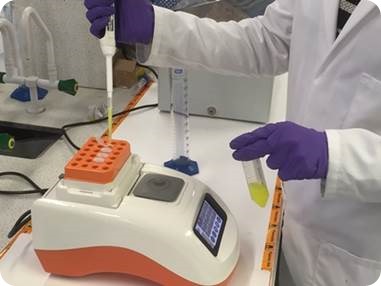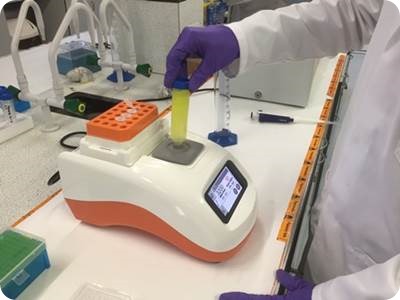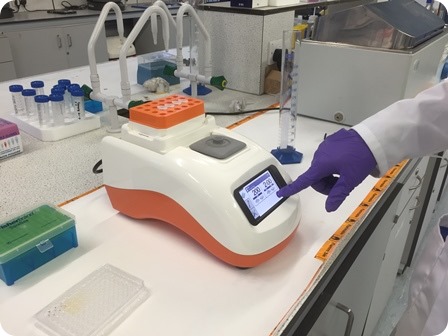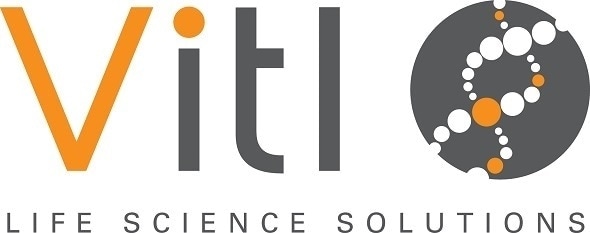Introduction
Nanoparticles are tiny delivery vehicles that can travel to regions where no drugs have gone before and provide the treatment at the right dose and time, with little to no side-effects. They have long been considered as having the potential to transform the future of medicine. In this article, Dr Vladimir Gubala, lecturer in Chemistry and Drug Delivery at the Medway School of Pharmacy, describes the challenges and benefits of using Vitl's Co-Mix.
Potential of Nanoparticles
Over the past decade, a number of papers describing the novel applications of these tiny particles have been found in all chemistry journals. However, despite this extensive research, nanoparticles are still not playing a key role in the medical field.
Dr. Gubala says that 15 years ago, researchers maintained that nanotechnology would transform the treatment of cancer or how we go to the doctor with a simple cough and ask if it’s a virus or bacterium. However, the poor availability of nanomedicines presents a different picture.
The meeting with Dr Gubala and his PhD students helped Vitl Life Science Solutions to understand the difficulties involved and to see how the Co-Mix programmable laboratory mixer (Figure 1) is helping.

Figure 1. Vitl's Co-Mix programmable laboratory mixer.
Point-of-Care Medical Devices
Dr Gubala’s team is made up of four postgraduate students who prepare nanoparticles in the laboratory that are specifically for human health applications. The whole detection and diagnosis technique depends on the ability to produce a high signal output when something such as a disease indicator is present and very low signal when nothing is there.
Nanoparticles could really play a key role here, compared with current techniques. Particles are similar to those that may be found in a point-of-care medical device such as a pregnancy test, and either generate a signal themselves or amplify the signal generated by some other reaction.
It is possible to produce the nanomaterials in various sizes and shapes. However, spherical particles are generally used because they are the easiest to produce. The nanoparticles can then be tagged with a range of fluorescent materials such as dyes or even proteins. Once the nanoparticles are produced, they are thoroughly characterized, which is currently a fully manual process that extensively employs a number of reagents.
A reliable method for the production and testing of nanoparticles on a small scale is an essential step to realizing large-scale production. This shows the inherent difficulty with nanoparticle synthesis and suggests that a lack of automation explains why mass industrial production has not been possible.
At present, the team is only able to produce nanomaterials in very small quantities and it is even difficult to ensure that these small amounts are homogenous due to natural inefficiencies in how humans work. Although small, this capability could make a significant difference in the nanoworld. Reducing these inefficiencies, is what the team are working on using the Vitl Co-Mix (Figure 2).

Figure 2.The Vitl Co-Mix helps Dr Gubala’s team produce homogenous nanoparticles.
Repeatability and Reliability
Repeatability and reliability are the two factors that form the cornerstone of all science, as well as being the two factors that instantly cause problems when humans are involved. According to Dr Gubala, the ability to automatically initiate, stop or stop and restart again provides some control over the reproducibility of a product. There is a significant inaccuracy between what is actually produced due to the nanomaterial being synthesized under different conditions.

Figure 3.The Vitl Co-Mix.
Therefore, automating the process as much as possible is the team’s objective. Without automation, the samples might be removed from the shaker at the right moment on some days, but they may be removed five minutes later the next day and the day after that, removal may be half an hour late. Subsequently, by time those particles are characterized, those different removal times can mean quite a heterogeneous mixture is produced, explains Dr Gubala.
The robustness of the Co-Mix is another aspect appreciated by Dr Gubala and his team. Before the arrival of the Co-Mix, the team was buying four mixers each year. Dr Gubala is pleased to be able say that the Co-Mix survived the difficult test of being used by a large number of his undergraduates. According to him, the Co-Mix can be considered as “Undergraduate-Proof.”
Nanomaterial testing
After the manufacturing phase, laboratory testing is performed where the material is accurately mixed, shaken, and incubated so that it can be understood how the material behaves at different temperatures and under different conditions. The lack of automation is also a limiting factor in this part of the process, says Dr Gubala.
To address this challenge, the team used the Vitl Ther-Mix, which enables the same repeatable, and controlled sample mixing as the Co-Mix, but with this being carried out within specific heated modules. These modules avoid condensate and minimized light exposure by providing intimate-contact heating from underneath and with a heated lid. Medway School of Pharmacy will be the first to use the Ther-Mix in its lab.
About Vitl Life Science Solutions
Vitl designs, manufactures and sells high quality laboratory instruments to compete with market leaders at an affordable price with unrivalled functionality, usability and style.
The growing Vitl laboratory products range includes the world’s best-selling microplate heat sealer- the VTS and its compact counterpart the MicroTS. Vitl also sell a range of foil and film heat seals as well as microtube pickers and programmable mixers and vortexers.
Vitl products was established in 2006 by the medical, diagnostic and analytical device design and manufacturing company Integrated Technologies Ltd.
As a member of the ITL group, Vitl benefits from the experience and expertise of a parent company that works with globally successful medical devices and laboratory instrumentation.
Vitl products are sold through a global network of distributors and OEM (private label) partners, managed by their main sales offices in the UK, USA and China.
Sponsored Content Policy: News-Medical.net publishes articles and related content that may be derived from sources where we have existing commercial relationships, provided such content adds value to the core editorial ethos of News-Medical.Net which is to educate and inform site visitors interested in medical research, science, medical devices and treatments.